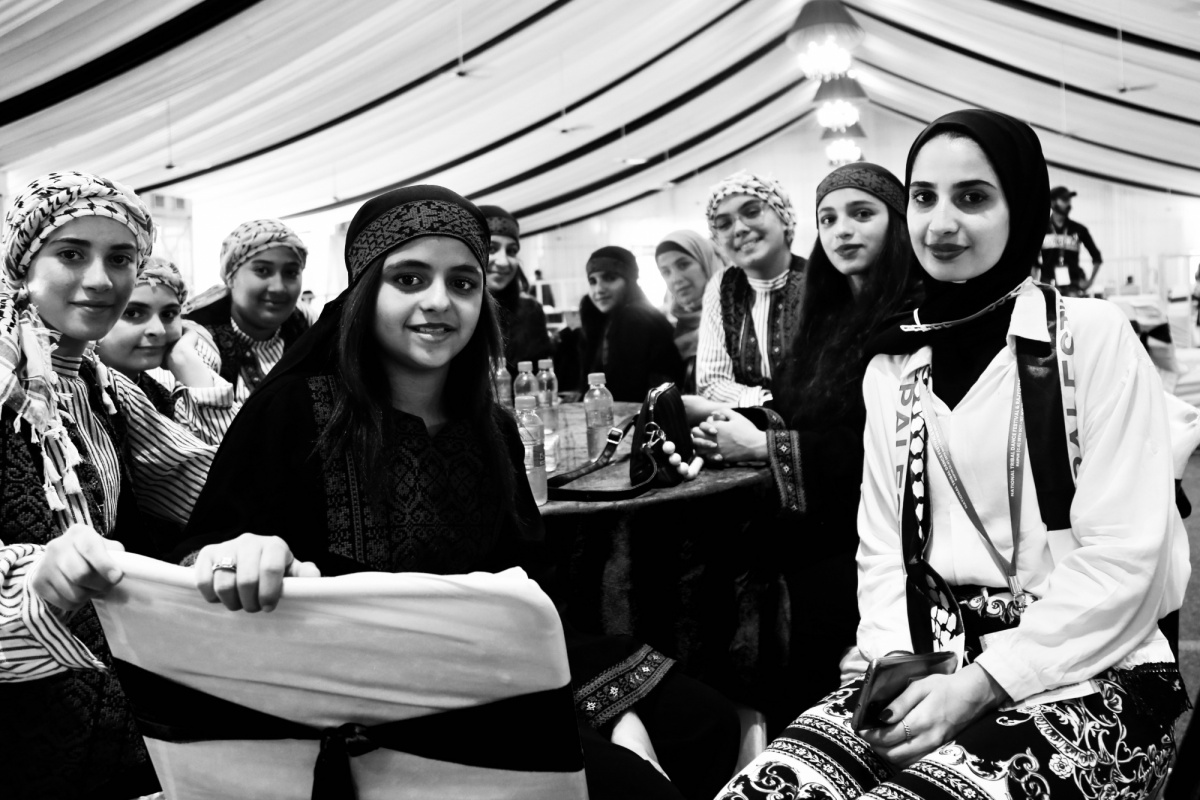Hamas frees eight hostages in Gaza; Israel delays prisoner release
Palestinian militants in Gaza, led by Hamas, released eight hostages, three Israelis and five Thais, on Thursday.
They are holding on tight to Palestinian flags before their Dabke dance performance at the National Tribal Dance Festival being held here. Not to forget, they are in Chhattisgarh, part of India’s red corridor.

Palestine in flesh and blood
A few years ago, when a friend visited Israel, she asked the guide if it was possible to see Palestine. The guide smiled, and replied politely, “but Palestine does not exist”.
The friend recounted that it was the sing-song voice and that big smile that accompanied the answer that numbed her.
Advertisement
In dusty Raipur, in attendance of the setting sun, a group of eight young women, wearing the keffiyeh, not just a symbol of Palestinian nationalism, but resistance, also extremely popular in Japanese fashion, where thought is a constant thread in trends; walk tall. They are holding on tight to Palestinian flags before their Dabke dance performance at the National Tribal Dance Festival being held here. Not to forget, they are in Chhattisgarh, part of India’s red corridor.
Advertisement
When you talk to them, they don’t say much — and it’s not to do with language alone. Perhaps they know that at times, mere presence is victory. The presence of the CID officer, who is making more notes than the journalist, is completely ignored by them — after all some things must not be very new to them.
All of them are speaking through the translator, R. Abdulhaq. She says they would not like to talk politics — but can anyone escape it?
After the rules of engagement have been set, the women, with one as young as 12 and the oldest, 18-years old, all from Nablus in the West Bank, stress that art and culture assume significant importance in their region. That there is more to it than mere entertainment. “Be it visual arts, poetry or dance, the Palestinian people are aware of its immense soft power.”
One of the girls decides to do a few steps of Dabke. It also enjoys the reputation of being a protest dance — right? The translator just smiles and nods.
“It is never about escaping the circumstances but more of a reminder,” says one of them.
In a place always punctuated by conflict, Dabke is a tradition that is passed on from one generation to another — remember the viral video of people across age groups — grandparents to children performing the dance in front of barbed wires as Israeli Defence Forces looked on?
They are set to go on the stage any minute now… One of the young ladies tells something to the translator. She says: “It’s performed on traditional Palestinian songs which are about love for the land, not giving it up, never abandoning it.”
You suddenly remember what the Israeli guide told your friend.
Advertisement